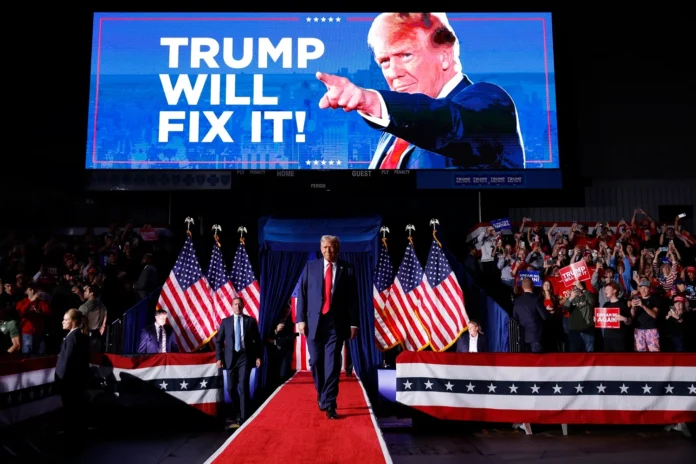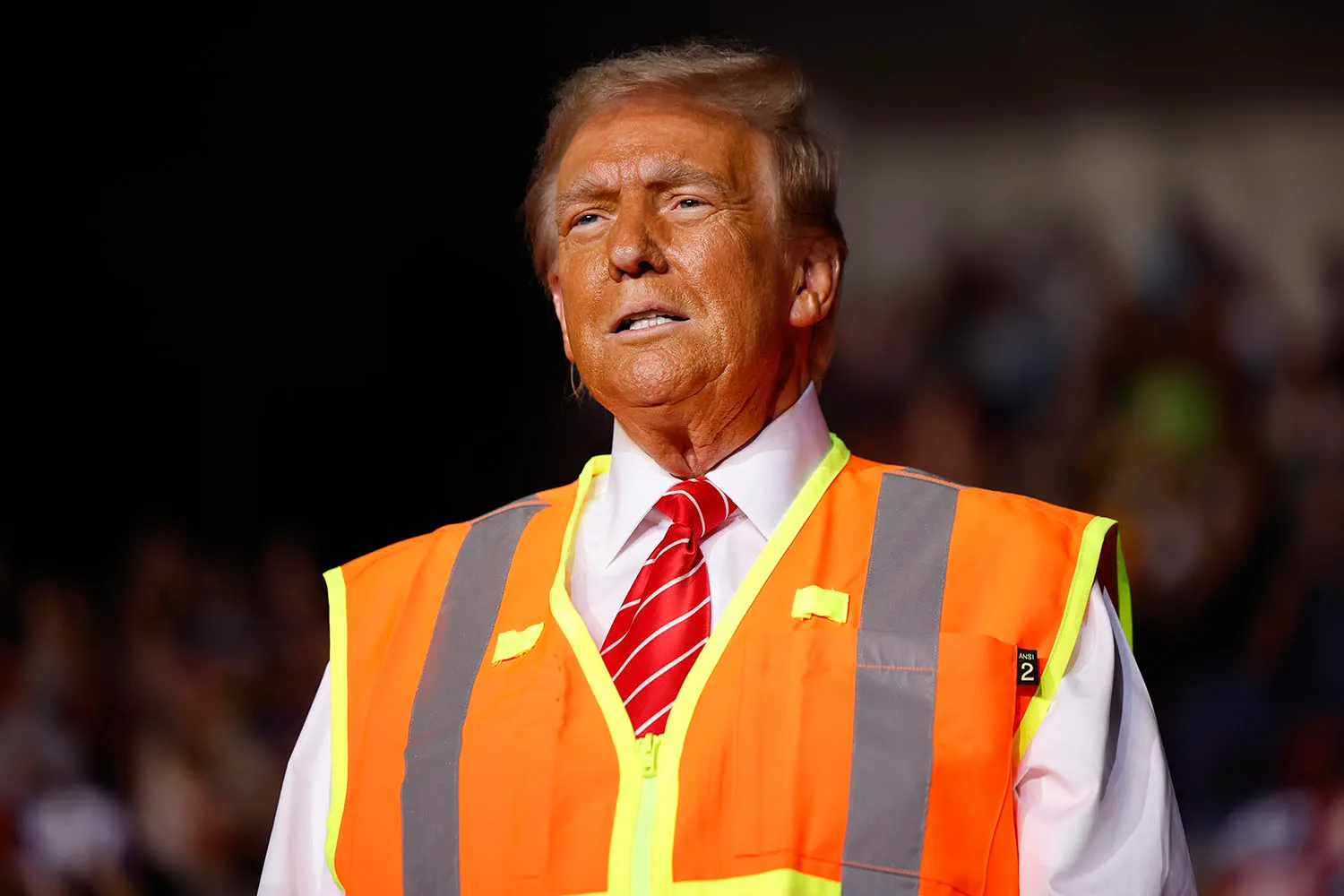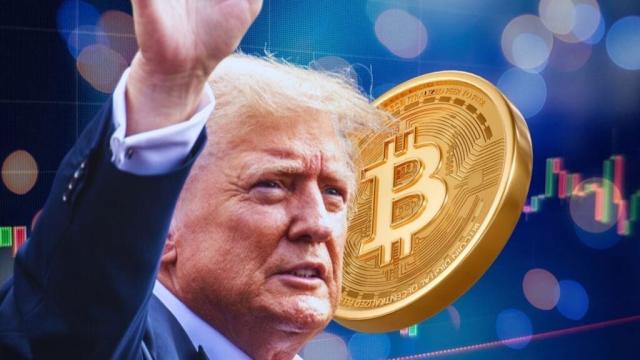
Trump 2.0 will bring about significant shifts in U.S. domestic and foreign policy, with a strong focus on deregulation, energy independence, and an unregulated pro-profit for business agenda.
These strategies are likely to influence multiple industries, driving growth in certain sectors. And so, for conservative Expat investors who don’t have time to research individual stocks, investing in industries using ETFs and Index Funds are a great way to ride the growth without picking winning and losing companies.
Here are the top five industries that stand to benefit from a “Trump 2.0” presidency;

1. Oil & Gas
Trump has historically been a strong proponent of U.S. energy independence, prioritizing domestic oil and gas production over renewable energy investments. Under Trump’s previous administration, initiatives like drilling on federal lands and streamlining environmental regulations accelerated fossil fuel extraction. A second term could revive these policies, further opening up federal land for exploration and potentially rolling back environmental restrictions, which could benefit major players in the oil and gas sector.
Potential Winners: ExxonMobil, Chevron, ConocoPhillips

2. Defense and Aerospace
Trump’s previous administration was characterized by increased military spending, with the defense budget reaching over $700 billion. His foreign policy stance emphasized a strong U.S. presence globally, particularly in regions like the Middle East and East Asia. A Trump 2.0 presidency may mean an increased focus on defense funding to enhance national security and military infrastructure, driving growth for defense contractors, weapons manufacturers, and aerospace companies that support the military.
Potential Winners: Lockheed Martin, Northrop Grumman, Raytheon Technologies

3. Construction and Infrastructure
Trump’s infrastructure plans have always been ambitious. Although his initial proposal to revitalize American infrastructure didn’t fully come to fruition in his first term, a second term might see renewed focus. Given the U.S.’s aging infrastructure and Trump’s tendency to favor large-scale construction projects, a Trump 2.0 presidency could push forward significant spending on roads, bridges, and other key infrastructure needs. This could benefit the construction industry as well as companies that provide construction materials and heavy equipment.
Potential Winners: Caterpillar, Vulcan Materials, United Rentals

4. Financial Services and Banking
Trump has consistently leaned towards deregulation in the financial industry, including policies that relax oversight on banks and financial institutions. This approach is intended to stimulate lending, reduce compliance costs, and encourage financial growth. During his first term, Trump signed the Economic Growth, Regulatory Relief, and Consumer Protection Act, which loosened some Dodd-Frank requirements for small and mid-sized banks. A second term could mean further deregulation, potentially benefiting large and regional banks, investment firms, and asset managers.
Potential Winners: JPMorgan Chase, Bank of America, Goldman Sachs

5. Pharmaceutical and Biotech
The pharmaceutical industry experienced a unique position during Trump’s first term, as his administration pushed for lower drug prices but also fast-tracked regulatory approvals. Trump championed “Right to Try” legislation, which allowed terminally ill patients to try experimental drugs. A Trump 2.0 presidency might maintain or even expand fast-tracking approvals for new drugs, potentially benefiting biotech and pharmaceutical companies that can quickly bring new treatments to market. Additionally, Trump’s preference for deregulation may allow these companies to reduce the time and costs associated with lengthy approval processes.
Potential Winners: Pfizer, Moderna, Regeneron Pharmaceuticals
Conclusion
While no one can predict with certainty what a Trump 2.0 presidency would entail, a few things seem likely based on historical trends and stated policies. Industries aligned with traditional energy, defense, infrastructure, financial services, and pharmaceuticals could see favorable conditions under another Trump administration.
For investors and industry players, these sectors could present growth opportunities and should be monitored closely for policy developments that could shift market dynamics.
As with any political climate shift, potential investors should weigh not only the economic factors but also the political and social impacts that may come with these industries’ growth, ensuring that investments align with both personal and market ethics.
Sources
Here are some credible sources that could provide background information and insights for the article “TOP 5 Industries That Will Benefit from The Trump 2.0 Presidency”:
- U.S. Energy Information Administration (EIA) – Offers detailed data and analysis on U.S. oil, gas, and energy policies, including production statistics and regulatory changes.
EIA Website - Department of Defense Reports – Provides insights on defense spending, procurement programs, and budget proposals that reflect government priorities in defense and aerospace sectors.
Defense.gov - U.S. Chamber of Commerce – Frequently publishes reports on U.S. infrastructure needs, investment gaps, and construction industry trends, relevant for understanding the potential impact of infrastructure policies.
US Chamber Website - Congressional Research Service (CRS) – Produces objective analyses on economic and regulatory issues, including financial deregulation and industry impacts, offering context on past changes to the financial sector under Trump’s policies.
CRS Reports - FDA and Biopharmaceutical Industry Reports – Information on “Right to Try” legislation and regulatory trends in the pharmaceutical and biotech industries can be sourced from the FDA and industry publications.
FDA Website - Bloomberg and Reuters – Both provide timely and in-depth analysis on market reactions to potential political changes, focusing on sectors that may benefit from a Trump administration.
Bloomberg
Reuters - Pew Research Center – Offers data on public opinion, policy impacts, and trends in industry support related to government policies.
Pew Research - Financial Times – Covers the effects of political administration changes on various industries, particularly in the areas of defense, energy, and finance.
Financial Times
These sources provide valuable information on policy impacts, industry forecasts, and economic trends that can lend context and credibility to the article.
#Trump2024 #InvestmentTrends #USEconomy #EnergyIndependence #DefenseIndustry #Infrastructure #FinancialServices #Pharma #StockMarket

Coach J.P. Money is the founder of Coach J.P. Money. He is an expert in Coaching and Money! He is also a writer, global citizen eco-activist, visionary, musician, artist, entertainer, businessman, investor, life coach, and syndicated columnist. He is also known as the music artist “Johnny Punish”; a name given to him by a bandmate during his Punk Rock years fronting the rogue underground punk band “Twisted Nixon”
His Expat home base since the late 1990s is Mexico. J.P. Money, aka Charles Bivona Jr., was educated at the University of Nevada Las Vegas (1980-81) and California State University Fullerton (1981-1984) with studies in accounting, finance and business. He bought is first real estate income property at 17 years old with no money down. He has been debt-free and building wealth since 1998.
Before the “internets” had been invented, he also owned and ran (5) national newspapers in the United States of America from 1987-1998. In addition, he created and ran the important online media sites; HireVeterans.com (2004-2020) and VT Foreign Policy (2004-2023).
J.P. Money is married to Queen Albertina from Sinaloa Mexico (1985). Together they have 3 adult children and 7 grandkids. They live in Baja Mexico at the home they built together out of plastic bags and dirt (Super Adobe). Now they share their epic artistic piece with the world as a unique luxury BnB called “Hacienda Eco-Domes“.
Read J.P. Money’s Full Bio at PunishStudios.com >>>











